detail profile bernd fiedler
Peran Yang Di Mainkan Bernd Fiedler
 Actually Wolfgang and Cleo are the...
Actually Wolfgang and Cleo are the...Das Flittchen und der Totengräber 1995
Actually Wolfgang and Cleo are the ideal couple. Nevertheless, the scraps always fly when they are together for a long time. After the last big fight, they finally split up. Unfortunately, both start their new lives in Las Vegas.
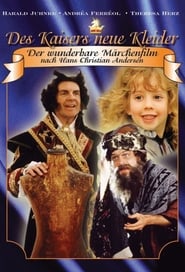 The Emperor of a European country...
The Emperor of a European country...The Emperor's New Clothes 1994
The Emperor of a European country demands new clothes to wear every day, in fact sometimes several times a day. He imposes a heavy tax on the poor citizens to pay for his vanity. An itinerant man and boy come to the capital city and see the injustice, and make friends, but they soon have to flee. They return disguised as Arab tailors, and offer to make the Emperor a new suit of clothes. But only the wise will be able to see it; fools, or those unfit for their public office, will not see anything. The Emperor orders the suit made, and much money is needed to purchase the raw materials. Eventually the suit is ready, and the Emperor and his officials pretend that they can see a wonderful outfit; will anyone prick the bubble of the illusion?
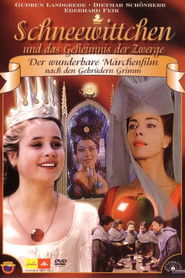 A queen is so vain she...
A queen is so vain she...Snow White 1992
A queen is so vain she needs the magical mirror the Black Knight forged to tell her daily she's the belle of the realm. When it adds Snowwhite, the king's heiress, has grown even more beautiful, the queen orders him and the shivering jester Andreas, who secretly loves the girl, to murder her step-daughter. However the knight fakes her death and seven dwarfs take her in at their magical mine. The dwarfs tell her various secrets, including true identities, and plot to save her, the disguised queen to murder her once the mirror betrays she's alive.
 When a young princess instead of...
When a young princess instead of...The Frog Prince 1991
When a young princess, instead of being fully dedicated to her love, persists in running around like a tomboy and roaming the forests with her gang, and a young prince refuses to give up all his vices and mischief, an aquaphobic fairy takes their fate into her hands. The princess then falls in love with the prince, who declares eternal fidelity to her. When he however breaks this promise, the fairy turns him into a frog. With which the loyalty of the princess is being tested as well.
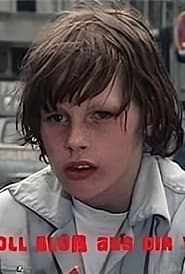 A 12 yearold street kid in a...
A 12 yearold street kid in a...What Shall Become of You 1984
A 12 year-old street kid in a slum of Berlin struggles to stay afloat through a commitment to his compassionate teacher and ambivalent classmates, aged 11-14, who also bear the harsh marks of impoverishment, which manifest themselves in peer ruthlessness and disrespect of adults.
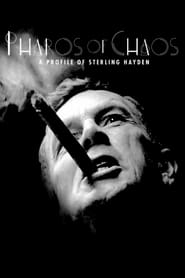 A superb moving and thrilling interview...
A superb moving and thrilling interview...Pharos of Chaos 1983
A superb, moving and thrilling interview with American actor Sterling Hayden (1916-86), held in Besançon, France, on board a dilapidated barge, when he was 65 years old. An unparalleled portrait, in his own words and without any qualms, of a legendary Hollywood star, icon of film noir and the western, who was also a marine, an OSS agent, an anti-communist informer, a writer and a wandering sailor: the hero of his own life.
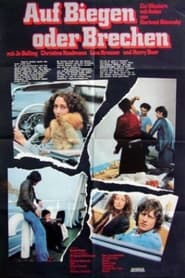 A darkly comedic exploration of personal...
A darkly comedic exploration of personal...Bent or Broken 1975
A darkly comedic exploration of personal struggle and societal pressure, we follow the story of a middle-aged man named Max, who is trapped in a life of monotony and frustration. After a series of unexpected events, Max finds himself in increasingly absurd and challenging situations, forcing him to confront his own limitations and fears. With sharp humor and a critique of societal expectations, the film delves into the pressures that shape our lives and the lengths we go to in order to break free from them. A poignant yet quirky tale about bending to life's demands or breaking under the weight of it all.
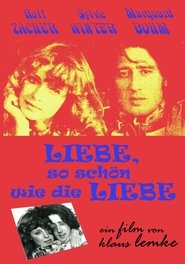 Munich in the 1970s A group...
Munich in the 1970s A group...Liebe, so schön wie Liebe 1972
Munich in the 1970s: A group of young people are killing time. Sylvie has broken up with her boyfriend, and a short time later he marries someone else. The slacker Rolf enters Sylvie's life and together they decide to form a circus group with their friends, mostly untalented petty crooks, and move to the provinces.
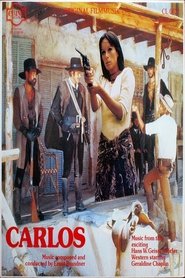 In the Southwest of 1915 Carlos backs...
In the Southwest of 1915 Carlos backs...Carlos 1971
In the Southwest of 1915 Carlos backs an intended uprising of the common countymen against his father Phillip, a despotic landowner who exploits the rural poors in his silver mines. But Carlos' indecision and his love for his young and beautiful stepmother leads into a failure.
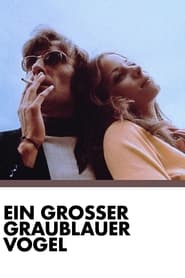 Two rival gangs try to obtain...
Two rival gangs try to obtain...A Big Grey-Blue Bird 1971
Two rival gangs try to obtain the five parts of a dangerous formula held by five scientists.
 Ingemo Engstrms graduation film DARK SPRING...
Ingemo Engstrms graduation film DARK SPRING...Dark Spring 1970
Ingemo Engström’s graduation film DARK SPRING was made at the Hochschule für Fernsehen und Film in Munich, where she began studying in 1967. After the premiere at a festival in Mannheim, Uwe Nettelbeck wrote in "Filmkritik": "Films like DARK SPRING […] do not translate into the language of those who immediately think they know what such films are about […] But more, DARK SPRING is the film of a woman and a women’s film in which women say something, namely: how they see things."

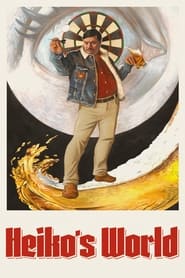 A son tries to save his...
A son tries to save his...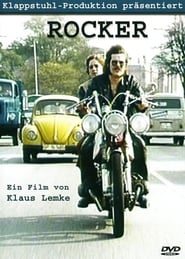 In Hamburg West Germany a rocker...
In Hamburg West Germany a rocker...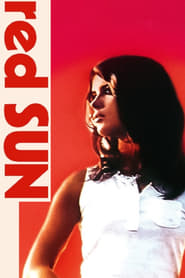 Thomas hitchhikes from Hamburg to Munich...
Thomas hitchhikes from Hamburg to Munich...